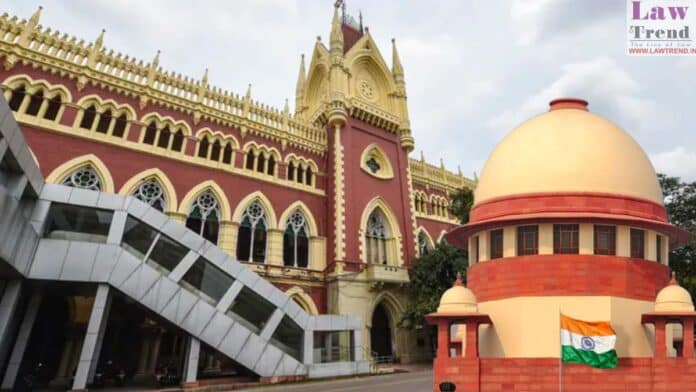The Supreme Court on Wednesday upheld a Calcutta High Court order allowing the felling of over 300 trees for the construction of five railway over bridges (ROBs) and the widening of a section of National Highway-112 near the India-Bangladesh border in West Bengal.
The apex court had on September 20, 2018 stayed the operation of the high court order.
It said that on account of the interim order of the apex court, the project has been stalled for almost five years and it cannot be forgotten that everyday’s delay escalates the cost of the project.

A bench of Justices B R Gavai and Vikram Nath said protecting trees, or effecting compensatory afforestation in case they can’t be, is necessary, but on the other hand there is a need for the ROBs also which is part of the Setu Bharatam project.
“In that view of the matter, we do not find any error committed by the high court,” the top court said, adding that the high court has considered all aspects of the matter.
It dismissed the plea of NGO ‘Association For Protection Of Democratic Rights’ which has challenged the HC decision on felling of over 350 trees for the construction of ROBs and the widening of National Highway-112 from Barasat to Petrapole on near border.
The bench in its order said the contest between the development and environmental concerns is ever-going.
Ecology and environment need to be protected for future generations, at the same time development projects which are necessary not only for economic progress but at times for safety of citizens too cannot be stalled, the SC said.
The committee, which was appointed by the top court to give recommendations on the best course of action to be adopted by the court in the matter, had submitted a report before the apex court on February 18, 2020.
A perusal of the recommendations will reveal that the committee itself concluded that bridges will have to be constructed to resolve the congestion at the railway crossing anyway, it said.
The bench said it is clear that the committee is still not sure as to whether by constructing local bridges, 356 trees will be saved or not.
During the hearing, advocate Prashant Bhushan, appearing for the NGO, submitted that in the past, various projects were allowed by the government without paying due attention to environmental concerns.
He submitted that unless a study is made on the alternatives, such a project which requires felling of 306 heritage trees should not be permitted.
He also claimed that as a matter of fact, the project needs felling of thousands of trees and not only 356.
Senior advocate Abhishek Manu Singhvi, representing the West Bengal State, said on account of the interim order passed by this court, the project has been stalled for five years and that due to congestion and accidents, more than 600 people have lost their lives.
He said out of 356 trees which were initially required to be felled, only 306 now survive and the state is willing to plant five trees as against felling of one .
The apex court said the report of the committee will shows there is congestion and on account of congestion the construction of bridge is necessary.
The plea before the apex court has challenged the August 31, 2018 order passed by the Calcutta High Court which had found that the felling of 356 trees was necessary for execution of a public project for construction of 5 ROBs.
PIL was filed before the high court challenging the state’s plan to fell the trees. After arguments for several months, the high court had allowed the felling of 356 trees at five places from Barasat to Petrapole border along the Jessore Road.







